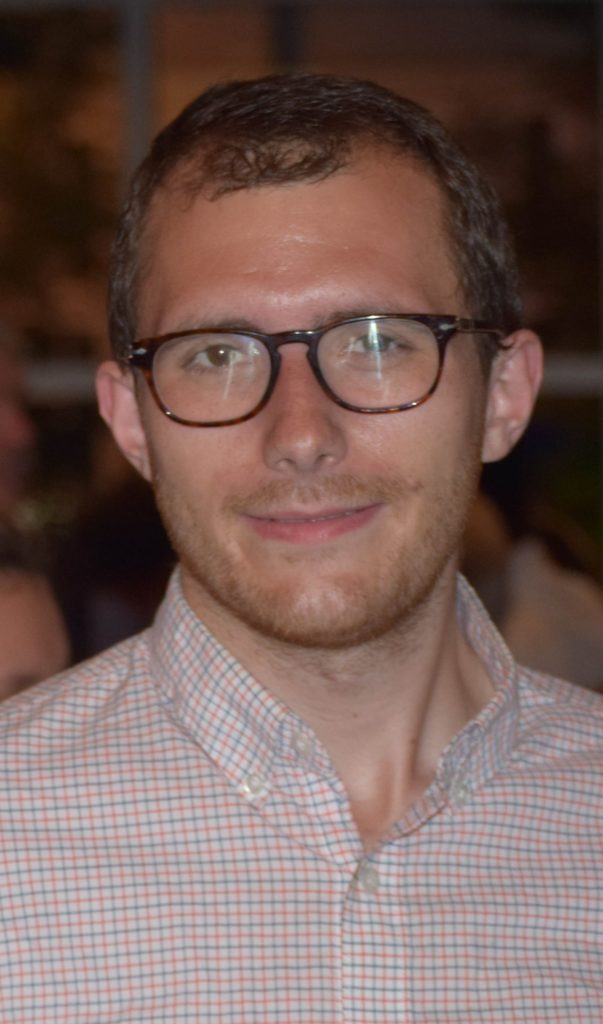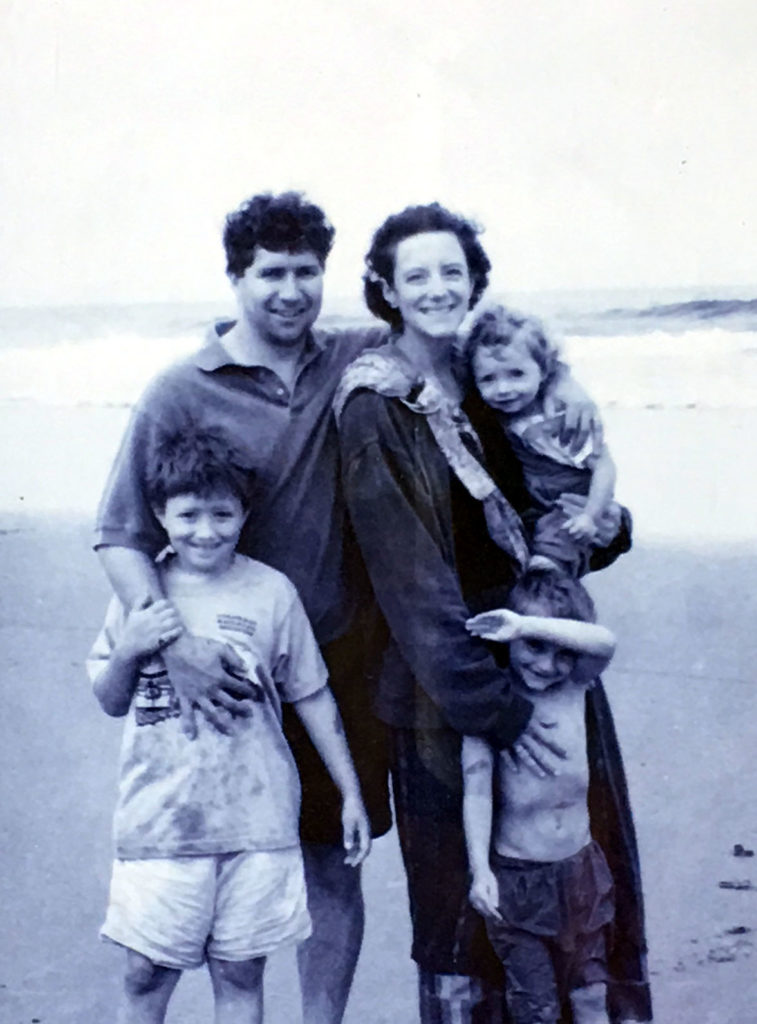Hunter Brown was looking for a fresh start. After years of struggle with a heroin addiction, the 25-year-old decided it was time to leave his hometown of Seattle. He boarded a Greyhound bus in June 2017 headed to San Francisco, where he planned to get clean and start a new life.
He never made it to his destination.
Brown was crushed to death under the wheels of the bus less than 500 miles into the trip.

A Dallas jury on Wednesday afternoon provided solace for Brown’s parents, Paula Becker and Dr. Barry Brown, by finding Dallas-based Greyhound Lines Inc. liable for their son’s death. Jurors ordered Greyhound to pay the family $20 million.
Greyhound and its lawyers have not responded to requests for comment. Greyhound’s lead lawyers at trial were Chris White and Katherine Compton of Lewis Brisbois’ Dallas office.
The family sued Greyhound several months after learning of Brown’s death, which occurred in the early morning hours of June 29, 2017.
The bus had stopped at a rest station in Central Point, Oregon for passengers to use the restroom and grab a bite to eat.
Brown had been sitting near the back of the bus, his father said, so he was “the last to get off the bus and the last to get food at Taco Bell.” As Brown was walking back to the bus with food in hand, Greyhound driver Arthur Coley drove away.
According to accounts presented at trial of other passengers on the bus, Brown ran after the bus trying to catch it. The bus kept moving despite Brown’s efforts to get Coley’s attention by banging on the bus door and despite other passengers demanding the driver to stop. As Coley turned right onto the road, he ran over Brown.
At trial, Charla Aldous, the lead lawyer for the family, presented evidence to the jury that Coley had failed to perform a mandatory headcount before leaving the rest stop, and that he drove away a few minutes before the set departure time.
Greyhound did not fire Coley, who had a history of angry and erratic behavior, until after the lawsuit was filed. Greyhound officially let Coley go after another incident, during which he allegedly smashed the cell phone of a passenger who was videotaping him being rude to other passengers. No criminal charges have been filed against Coley for Brown’s death.
The jurors returned their verdict after an emotional eight-day trial and three hours of deliberation in Dallas District Judge Emily Tobolowsky’s court.
The most gratifying part of the verdict, Becker and Dr. Brown said, was the $3 million that the jury awarded to Brown’s estate for the pain and suffering he endured as the bus ran over him.
“That was the most haunting thing to me — what was going on in his poor mind as that was happening,” Ms. Becker told The Texas Lawbook in an interview. “It was an amazing kindness and use of the law in the way it should be used that the jury made specifically because of Hunter’s pain and suffering.”

An obstacle the plaintiffs knew they’d face at trial was the fact that their son was an addict — something they said the defense tried to capitalize on.
“We knew a [very likely] element of the defense was that Hunter was a heroin user, therefore he must have been impaired,” Dr. Brown said. “They went back and forth for quite a while [on that notion] during trial.”
Dr. Brown said his side spoke to several jurors after the trial, who told them their son’s addiction didn’t matter to them.
Although Brown had heroin in his system the night of his death, Aldous said he was not high at the time of the incident.
“The thing that bothered me from the outset is … Greyhound discounted Hunter’s life because he had addiction problems,” said Aldous, who owns her own law firm in Dallas. “That really disturbed me, and the fact that Greyhound would not take responsibility despite them knowing the driver had not taken a [mandatory] headcount.”
Aldous got involved in the beginning of the case through Portland, Oregon lawyer Jane Paulson, who the family retained to investigate the circumstances of their son’s death. Paulson also played a significant role at trial.
Aldous said she generally never agrees to take a client’s case until she meets them face to face, but this case was an exception.
“When I visited with the clients by phone, I knew they were the kind of people I wanted to represent,” Aldous said. “I thought it was compelling that the company had written policies and procedures that they did not enforce. Greyhound refused to accept responsibility, and it was a case I knew in my heart needed to be tried.”
In addition to both parents’ “gut-wrenchingly painful” live testimony, another powerful moment of trial came when an eyewitness of Brown’s death voluntarily flew to Dallas to testify before the jury.
“She said, ‘I have to come to Dallas and testify because I cannot live with myself if I don’t,’” Becker recalled. “She gave an absolutely crystal-clear account of what it was like to be on the bus. She turned to the jury in tears and said, ‘That was the worst thing that’s ever happened to me in my life.’”
Becker and Dr. Brown said Aldous also knocked it out of the park when she delivered her closing argument.
“It’s just absolutely amazing to see someone with so much skill and so much passion,” Becker said.
“Her motivation is so pure and that comes through every second you’re in court,” Dr. Brown added.
The plaintiffs described every member of their trial team — which also included Aldous’ law partner, Brent Walker — as “kind” individuals “with the utmost integrity.”
The jury assigned 90% of the negligence liability to Greyhound and 10% to Brown, since he had run out into the road with the bus. The verdict, which was not unanimous, did not include punitive damages.
An unexpected twist in the trial came post-verdict, when a few members of the jury informed the plaintiffs’ team that the minority voter had used his experiences as a former bus driver to try to sway the others’ opinion in favor of Greyhound. Aldous said she was shocked because that juror had lied about his prior bus driving experience on his written questionnaire.
“Had we known about his experience, we absolutely would have questioned him further about his feelings, but we relied on his truthfulness to our detriment,” she said.
Despite that, she said she was still “thrilled” with the outcome, which she described as “justice.”
“I’m still kind of emotional about it,” Aldous said. “Practicing law to me isn’t a job, it’s not a profession — it’s my calling. Getting a result like this and seeing the healing transformation that is taking place for my clients, it’s why I do what I do. It just brings me great peace and great fulfillment — and sometimes joy — in the midst of tragedy.”
Brown is also survived by a brother, Sawyer Brown; a sister, Lillie Brown; and grandparents David and Shirleen Becker and Stuart Brown and Joan Henderson Brown.
After his death, Paula Becker, who is an author, published a memoir that recounts the family’s struggles with Hunter’s opioid addiction. It’s titled On Stilts: Mothering in the Age of Opioid Addiction and can be purchased on Amazon.
